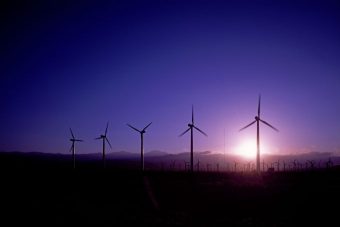
Cuba aims to become one of the more than 100 countries that will meet their energy demands with renewable sources like wind, water or sunlight by 2050, as experts predict.
To reach that goal, Cuba plans to produce around 24 percent of its total energy needs from different renewable sources by 2030.
It is an ambitious target given that as of 2006, the island nation generated only 4.3 percent of its energy from renewable sources.
One of the key projects currently under construction is a vast complex consisting of two wind farms, La Herradura 1 and La Herradura 2, located in the province of Las Tunas, some 600 km east of Havana.
They will generate around 101 Megawatts (MW) of energy that will be fed into the National Electric System.
Behind the complex is Chinese technology, according to Adela Alvarez, an official at Cuba’s Integrated Wind Energy Management company.
Cuban officials chose two Chinese companies to supply the project — Goldwind Science and Technology Co., a global provider of wind turbines over the last three years, and Dongfang Electric Corporation, a firm specializing in renewable energies and high technology.
La Herradura 1 will be equipped with 34 Goldwind wind turbines measuring 65 meters in height with three 37-meter blades, generating 1.5 MW of power distributed in five circuits.
La Herradura 2 will feature 20 Dongfang wind turbines of 2.5 MW each, which will contribute a total of 50 MW to Cuba’s electric grid.
Miguel Casi, an official from Cuba’s Electric Union, said the first wind farm will save Cuba nearly 40,000 tons of fuel a year, and stop nearly 130,000 tons of carbon dioxide (CO2) from being released into the atmosphere.
“We estimate the second wind farm could save 39,000 tons of fuel a year, as well as 127,000 tons of CO2,” Casi said.
The goal is to have at least one circuit operating by the end of this year.
Cuba currently has more than 9,300 windmills and 20 generators distributed in the nation’s four existing wind farms, located in the central province of Ciego de Avila, in the southern Isle of Youth as well as in the northeast province of Holguin, where there are two.
Total installed capacity currently stands at 11.7 MW, which means the Caribbean nation ranks 69th worldwide in wind energy.
Havana will host a forum titled Renewable Energies Cuba 2018, from Jan. 30 to Feb. 1, to showcase business opportunities in the island nation in the alternative energies sector for potential foreign investors.
So far, more than 50 firms from 13 countries have confirmed their presence, including a large number of Chinese corporations.
Source: xinhuanet.com




